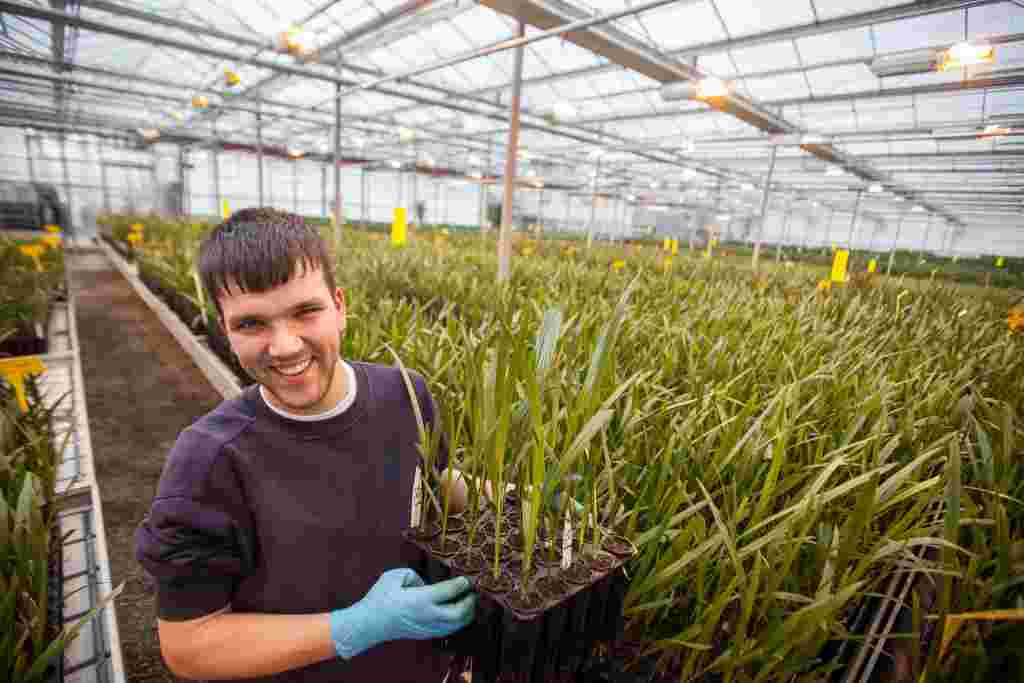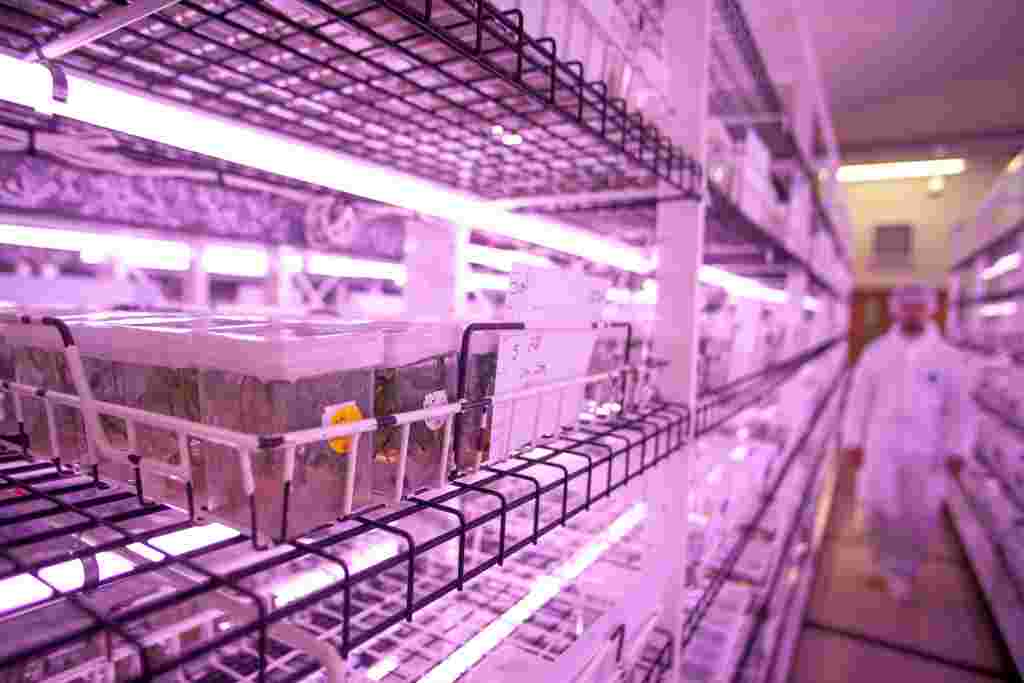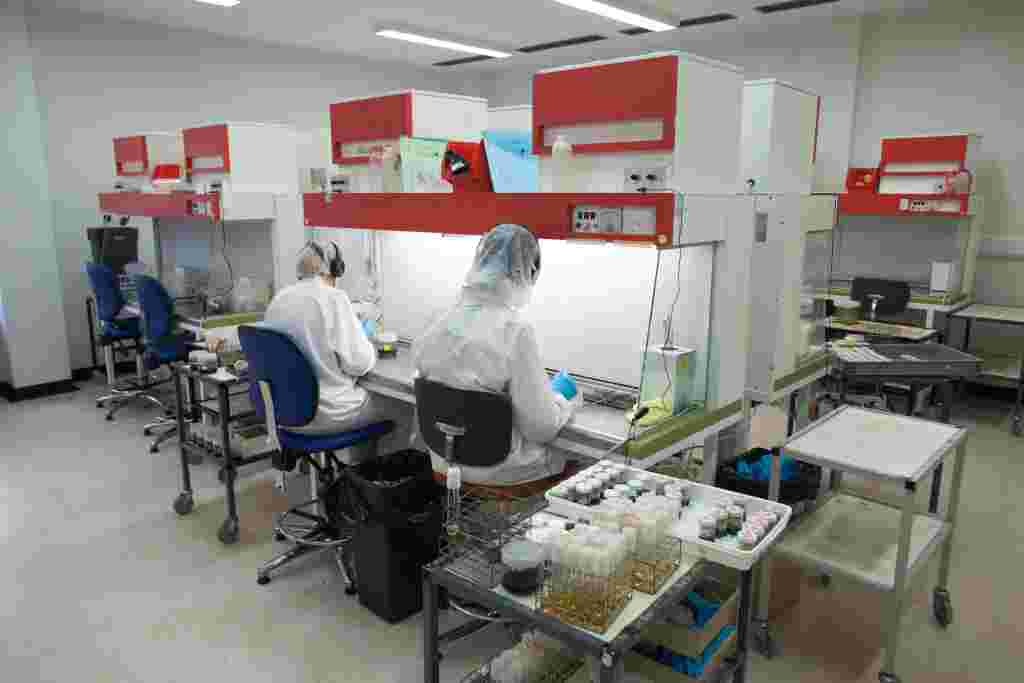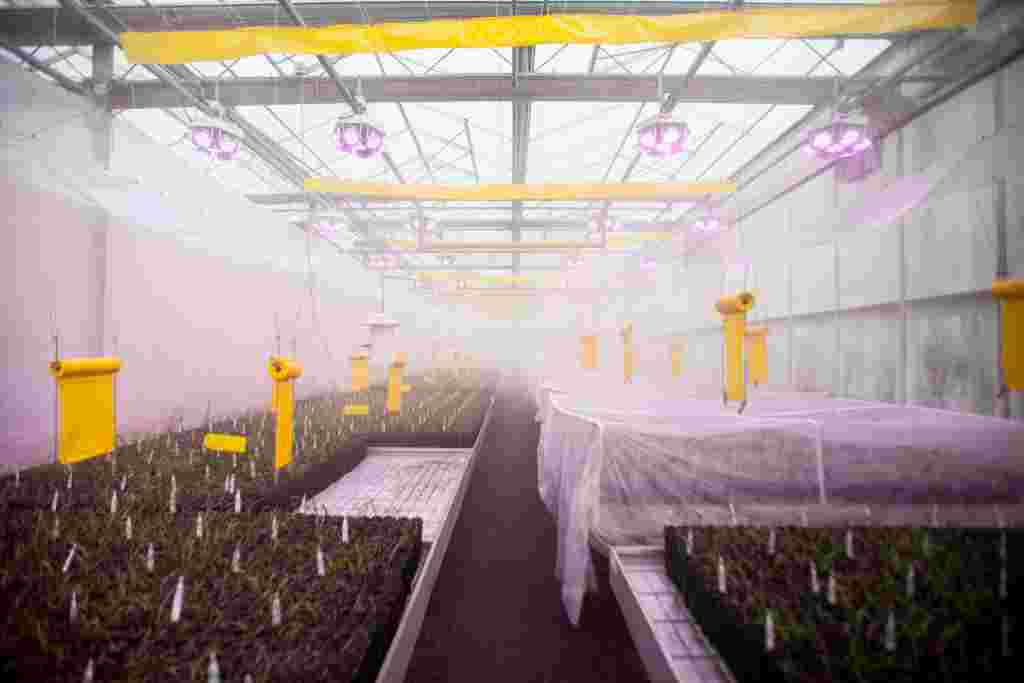
Date Palm Developments exports more than 140,000 plants a year to some of the hottest parts of the world, including Dubai, Egypt, Thailand and the Caribbean.
The company has already sent over two million palm trees to 35 countries such as Australia, Peru, South Africa, Nigeria and Haiti.
And now it has won planning permission to double its 2,000 square metres of greenhouse space near Glastonbury, Somerset.
Managing director Avril Blackpool said their plants are sought-after because they can guarantee they are disease free.
She said: “We can authentically state that the plant is from an area that does not have natural pests.”
Their method of growing is also much faster and less labour-intensive than traditional methods, she added.

To propagate the date palms, Avril and her team use a bud from a parent tree to produce miniature cuttings.
These are then grown in the laboratory for about six months – until they are around 8cm tall.

They are then transferred to a humid greenhouse for a few weeks so they can adapt to withstand normal greenhouse conditions.
The saplings then spend another year or so in a greenhouse until they are roughly 30 cm tall.

Once they arrive in their new countries, the plants spend six to nine months in a nursery until they are ready to be planted outside.
Avril said: “They will just get taller and taller and taller. They don’t stop growing until they fall down or blow over.”
The company started as a research project 40 years ago and became part of the Indian conglomerate Atul in 2011.
As well as decoration in countries such as Dubai, the palms are also used to harvest dates and the first crop will be ready after three or four years.
Ms Blackpool said: “Date palms have great cultural significance in the Arab world but we mainly supply to farmers who provide a food crop.”
The company has doubled its turnover in the last five years and will now invest £3.5million extending its greenhouses.

















